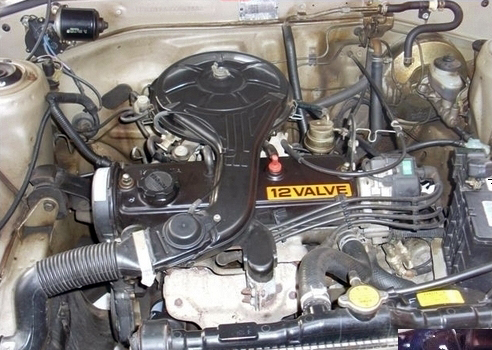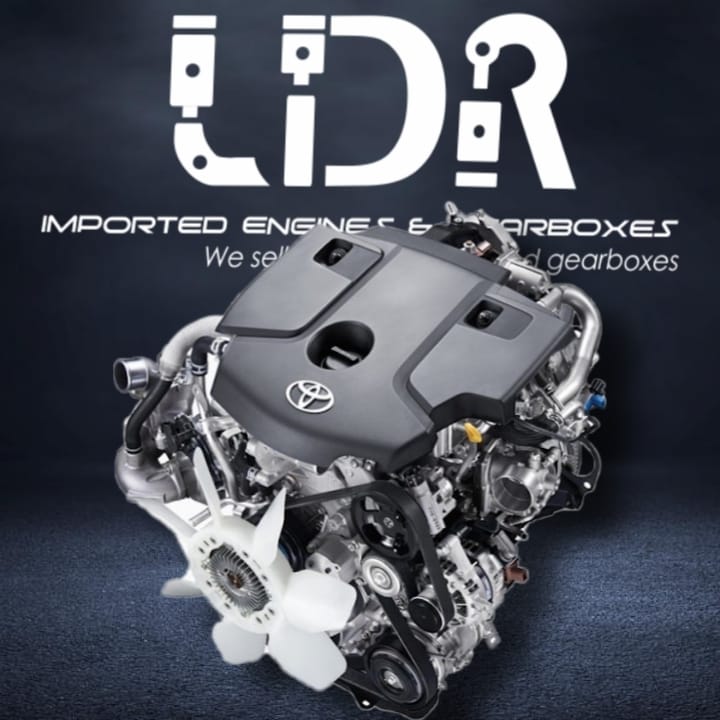Engine Buying Professional Tips on Choosing the Right Engine for Your Certain Requirements
Selecting the appropriate engine for your specific requirements includes a complex interaction of aspects that go beyond simple horsepower numbers. By diving into the intricacies of power versus performance, examining fuel ratings, and budgeting for lasting expenses, one can truly maximize their engine choice.
Power Vs. Efficiency: Discovering the Balance
When choosing an engine, it is essential to strike a balance in between power and performance to satisfy your specific demands properly. Power refers to the engine's ability to generate energy for propulsion, identifying factors like velocity, pulling capacity, and total efficiency (Toyota Tazz Engine For Sale). On the other hand, performance connects to exactly how well the engine utilizes gas to create power, affecting factors such as gas economic climate and environmental kindness
Accomplishing the right equilibrium between power and efficiency is crucial since an engine that is too effective might consume too much fuel, leading to greater operating expenses and unneeded stress on the environment. Alternatively, an engine that focuses on effectiveness over power may result in slow-moving performance, particularly in demanding circumstances like hauling heavy tons or driving uphill.
To make an informed choice, think about elements such as your typical driving problems, the designated use of the lorry, and your personal choices. By examining your concerns and needs, you can choose an engine that strikes the excellent balance in between power and efficiency, making sure optimal performance while minimizing environmental impact and operating prices.
Recognizing Engine Size and Kind

In addition, engine type plays an essential duty in figuring out the performance qualities of an engine. Typical engine kinds include inline engines, V engines, and rotary engines, each with its special advantages and drawbacks. The engine kind influences variables such as the engine's dimension, weight distribution, and power delivery. Comprehending the interaction in between engine size and type is vital in choosing an engine that lines up with your details needs and priorities, whether it be power, effectiveness, or a balance of both.
Consider Your Vehicle's Demands
Considering your vehicle's requirements is a basic action in the engine choice procedure to make certain optimal efficiency and performance. It is crucial to evaluate elements such as the meant use the lorry, its weight, towing ability, and gas performance needs. If you are looking for an engine for a heavy-duty truck that will certainly be made use of for towing, you will need an effective engine with high torque abilities. On the other hand, if you are selecting an engine for a portable automobile primarily utilized for city commuting, gas performance may be a much more important factor to consider.

Evaluating Fuel Efficiency Scores
Examining fuel effectiveness rankings is a critical facet of selecting the best engine for your vehicle, guaranteeing price savings and ecological sustainability. Gas effectiveness rankings, commonly measured in miles per gallon (MPG) for fuel engines or kilowatt-hours per 100 miles (kWh/100 miles) for electric engines, show just how far a lorry can travel on a particular quantity of fuel or electricity. Greater MPG or lower kWh/100 miles values symbolize more effective engines, equating to lowered fuel expenses and reduced carbon exhausts.
When evaluating gas performance ratings, consider your driving requirements and behaviors. An extremely fuel-efficient engine can result in significant savings over time if you commute long distances daily. Additionally, contrast different engine choices within the exact same car class to determine one you can try this out of the most economical selection. Elements such as engine dimension, weight, the rules of aerodynamics, and hybrid or electric capabilities can all influence gas performance.
Budgeting for Long-Term Costs
Strategically planning for long-lasting expenses is imperative when selecting an engine, making certain financial sustainability over the vehicle's lifespan. While the preliminary acquisition cost of an engine is a significant factor, it is important to consider the lasting costs related to upkeep, repairs, and fuel usage. Deciding for a more fuel-efficient engine may have a greater upfront price however can cause significant cost savings with time. Routine maintenance, such as oil adjustments, filter substitutes, and tune-ups, is vital to maintain the engine running efficiently and successfully, reducing the danger of costly repairs down the line.
Moreover, looking into the accessibility and price of Read More Here replacement parts for the picked engine is important in budget planning. By thoroughly budgeting for these long-term expenditures and factoring them into the decision-making process, people can pick an engine that not only fulfills their instant demands however additionally continues to be cost-effective throughout its life-span.
Final Thought
To conclude, selecting the appropriate engine for your certain requirements needs stabilizing power and effectiveness, understanding engine dimension and kind, considering your lorry's demands, examining gas efficiency scores, and budgeting for long-lasting prices. By thoroughly thinking about these elements, you can ensure that you select an engine that satisfies your requirements and offers optimum performance for your lorry.
To further improve the choice procedure of an engine that strikes the ideal balance in between power and effectiveness, it is necessary to dig into the details of understanding engine dimension and kind. Engine size refers to the complete quantity of air and fuel that can be pushed via the engine cyndrical tubes. Common engine kinds include inline engines, V engines, and rotating engines, each with its one-of-a-kind benefits and drawbacks. Understanding the interplay between engine size and type is crucial in choosing an engine that aligns with your particular needs and priorities, whether it be power, effectiveness, or an equilibrium of both.
Gas effectiveness rankings, normally gauged in miles per gallon linked here (MPG) for gasoline engines or kilowatt-hours per 100 miles (kWh/100 miles) for electric engines, suggest just how much a lorry can take a trip on a particular quantity of fuel or electrical power.